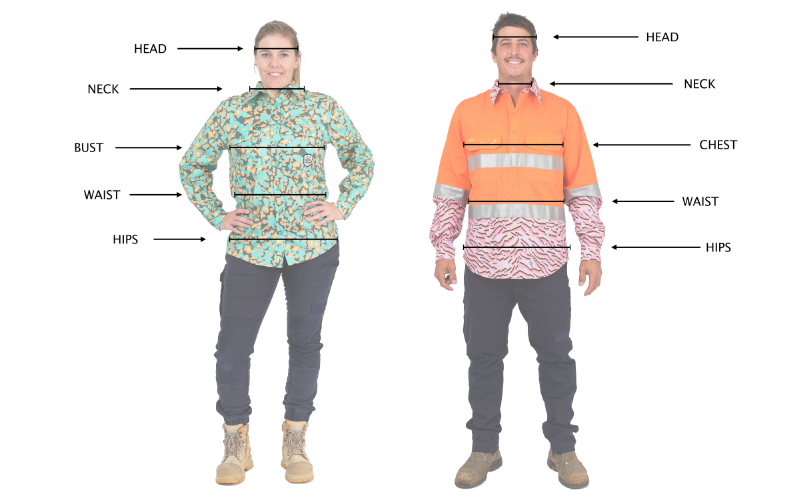A group of guys at a BBQ I attended expressed that they could wander around a hardware store for close to an hour searching for a specific item they needed. This intrigued me, so I asked, if you were in a supermarket looking for a brand of deodorant for your partner would you ask someone? All agreed that they would in that instance. Why the disparity in reaching out behaviour? The guys said well asking for help would reflect a deficiency in my abilities to understand hardware. This is interesting, people will avoid asking for help in fear of feeling inadequate. At the supermarket the guys did not have the same expectations of themselves, so they asked for help. When analysing the guys beliefs about shopping at a hardware store, one thing became clear, they are completely baseless. There is no reason why the guys should be able to locate an item in either stores more effectively, if they don’t know the store well. How, then, is asking for help in any way a reflection on them?
It isn’t! Except in their mind. Comfort with power tools and building supplies are all part of society’s marketing of manhood. So in their mind the ability to locate an item in hardware store is representative of status as a man. I should know where things are. This “should” belief makes asking for help an impossibility. With no such “should” beliefs related to locating items in a supermarket, asking for help is easy and obvious.
This same internal thought dynamic exists with regard to asking for assistance with life issues that one might encounter. There are certain areas of life for which people have no qualms reaching out to others, whereas there are other categories for which one believes seeking help reflects poorly on them as a person. Unfortunately, Mental Health seems to fall under that category.
It is hope of TIACS that people don’t expend immeasurable time and energy “roaming the aisles” of life looking for mental health and well-being. It is easy to ask a professional who can assist them in a more mentally healthy existence.
There are four common reasons why people don’t seek treatment for mental health.
Reason 1 - Everyone has issues and mental health is not legitimate
Not true. Mental health is treated by psychologists and other mental health professionals, it is also treated by real doctors who went to medical school (psychiatrists). We have hospitals that are specifically geared toward treating these issues, units in general hospitals specialising in providing treatment for mental health issues, and medicare and health insurance that reimburse for a broken arm reimburse for psychological issues. Anyone who has struggled with depression, addiction, etc. knows how very real these issues are. While many people may experiences variants of some of these issues (sadness as opposed to depression, nervousness as opposed to anxiety, feeling compelled toward something versus being addicted to it), this does nothing to diminish the validity of an actual diagnosis. Being unable to get out of bed in the morning due to an overwhelming sense of sadness (depression), being unable to function due to using substances or viewing illicit materials (addiction), a pervasive feeling of being on guard and unsafe (PTSD), or other very real experiences that match the symptom list of various psychiatric diagnoses, are both genuine and legitimate.
Meeting the symptoms requirements for a mental health diagnosis is no different than meeting criteria for a physical diagnosis.
Reason 2 - Mental health doesn’t need treatment
Truth be told, many people consider that mental health issues such as depression and anxiety do not require treatment… for the staff at TIACS that’s like saying someone with cancer does not need an oncologist, someone arrested for a crime doesn’t need a lawyer, and someone whose car isn’t working doesn’t need a mechanic.However, if one is interested in addressing any of these issues, then making use of a professional can be extremely helpful. As has been said in legal circles: “He who represents himself has a fool for a client.” Rather than asking “Do I need treatment?” try asking, “Could treatment be helpful?” keeping in mind that you could only make an informed decision with information about the issue at hand and the treatment available.
Reason 3 - There is something deficient in me because I need help
Visualise your mate confiding that they have been struggling with depression. Is the first thought that enters your mind: “Geezus! I can’t believe this deficient individual is someone I consider my mate!”? Probably not. Because you don’t actually believe that struggling is an indication of a flaw. Why apply that logic to yourself?
Another reason is that people you looked up to didn’t shared their struggles resulting in your belief that struggling is not a part of successful person’s life.
A final option is that you believe humans are in some way meant to be perfect. You equate people to objects. Just as a cup with a crack is broken, a person can be broken too. What represents a broken human being? Someone who cannot check off all the boxes of what it means to be the perfect person. Your struggles don’t make you less of a person; they are what makes you the complete and unique person. We learn from imperfection.
Reason 4 - Getting help won’t work
How do you know? Have you tried? If so, have you tried every form of treatment with every known provider? If you can’t answer yes to these questions, then try readjusting your belief to “I am sceptical.” This healthy scepticism can help you fully engage in treatment with your eyes wide open for change. You can evaluate the dynamic between you and your therapist, the type of treatment program you are getting, and if the combination of both these systems are helping. If you notice positive results, then you have benefited from giving it a try. If not, then you have the opportunity to pivot to a different method. Trying something doesn’t mean you are stuck with it. Evaluate through engagement, rather than blindly generalise through avoidance.
Now ask for help
With your thoughts healthily adapted, grant yourself permission to take action and take steps to improve your life by reaching out. TIACS offers free psychological services to help you call or text 0488 846 988.















